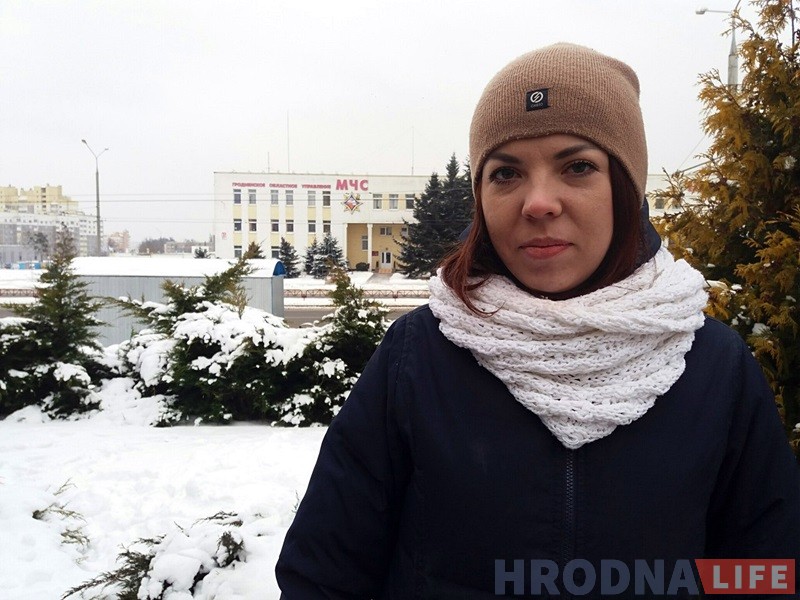Paper on business education, the 2016 Journal of Belarusian Studies, Belarus-Lithuania – Ostrogorski Centre digest

Ryhor Astapenia on Belsat TV
In January, analysts at the Ostrogorski Centre discussed Belarus’s new oil war with Russia, the dynamics of Lithuanian investments in Belarus, and the initial impact of visa-free regulations on Hrodna Region.
The Ostrogorski Centre released the analytical paper ‘Belarusian business education: from a command economy to the market’, which resulted from the Fourth Annual Dutch-Belarusian-Polish conference on education.
The Centre also published the 2016 issue of the Journal of Belarusian Studies.
Analytics
Vadzim Smok discusses whether Belarus stands a chance in a new oil war with Russia. Oil products remain Belarus’s No.1 export commodity, making up a third of Belarus’s export revenues. Meanwhile, Russia has less and less need of political allies as it increasingly relies only on itself. The country is also adjusting its military policy to ensure its independence from the Belarusian army on the western front. With no alternative options for hydrocarbon supplies, and Minsk’s decreasing political and security leverage, the country will have to play by Moscow’s rules.
Ryhor Asapenia analyses recent developments in Lithuanian investment in Belarus. Lithuanian businessmen have become the largest Western investors in Belarus, adding more than €80 mln to the Belarusian economy in 2015. Investments remain at a high level, although several Lithuanian companies have abandoned their projects because of the Belarusian economic crisis. Moreover, the poor political reputation of the Belarusian authorities still discourages Western businessmen from investing.
Alesia Rudnik writes about the initial impact of the new visa-free regulations on Hrodna Region. In response to the increasing number of foreign tourists, Hrodna Region has started work on two important initiatives: visa-free railway voyages and launching low-cost flights to Hrodna airport. However, making railway services and the Hrodna airport accessible visa-free will not attract many more tourists if more tourist services are not first developed. Extension of the visa-free territory to the whole of Belarus and investment in the development of services would significantly improve the popularity of Belarus for tourists.
Analytical paper: Belarusian business education: from a command economy to the market
 The Ostrogorski Centre releases an analytical paper which resulted from the 4th Annual Dutch-Belarusian-Polish Conference ‘Education as a Human Right: Modernising Higher Education to Meet the Challenges of the 21st Century’.
The Ostrogorski Centre releases an analytical paper which resulted from the 4th Annual Dutch-Belarusian-Polish Conference ‘Education as a Human Right: Modernising Higher Education to Meet the Challenges of the 21st Century’.
The sphere of Belarusian business education is experiencing very challenging times in connection with the economic crisis in the country. Over the last three years, the amount of turnover in the market in dollar terms has decreased by nearly half, according to various assessments.
Three key problems exist today which representatives of the government, the international community, and business educators would do well to focus on: state regulations, poor integration into the international educational space and lack of affordable business education in the regions of Belarus.
- Read the full paper: Belarusian Business Education: from a Command Economy to the Market
The 2016 Journal of Belarusian Studies
The 2016 issue of the Journal largely resulted from a conference organised by the Ostrogorski Centre and the UCL School of Slavonic and Eastern European Studies in London in March 2016. The conference gathered around 20 scholars of Belarus from the United Kingdom, United States, Germany, Canada, Poland, and France. Three papers were selected for publication alongside the annual lecture on Belarusian Studies delivered by Professor Andrew Wilson.
- The electronic version of the Journal is available here.
- The paper version of the Journal is available for purchase here.
Comments in the media
Ryhor Astapenia analyses Lithuanian investments in Belarus on Polish radio. Lithuania remains the largest Western investor in Belarus. Lithuanians understand the Belarusian mentality and see many opportunities in the Belarusian economy. Due to the recession, Belarus has become less interesting for investors, while political tension between the countries over the Astraviec NPP does not affect business interests, the expert believes.
On the PraSviet programme on Belasat TV, Ryhor Astapenia comments on the role of Belarus in the Russian defence system. Moscow no longer considers Lukashenka a close ally, but is instead militarising its western regions. According to Ryhor, Russia will not consider placing a military base in Belarus in the nearest future. However, the issue may appear on the bilateral agenda again when Belarus has a weaker bargaining position.
Al Jazeera quotes Igar Gubarevich in an article about the Astraviec nuclear power plant. Igar argues that Lithuania’s resistance to the plant is partially fuelled by the fact that BelNPP is being built by Russia, whose technology and influence is widely mistrusted in the Baltic country. The series of incidents at the construction site has made Lithuania’s position stronger. Now, Belarus will have to make an extra effort to address safety concerns.
On Polish radio, Ryhor Astapenia analyses the interconnection of the Belarus-Lithuania dispute over the Astraviec NPP and a potential re-orientation of Belarusian cargo transportation routes. So far, Belarus primarily uses Lithuanian ports, but Russia and Latvia may take advantage of the cooling relations between Minsk and Vilnius to promote their interests.
Igar Gubarevich analyses Belarus’s vote at the UN General Assembly on Polish radio. The vote shows that Minsk is pursuing a much more independent foreign policy than most observers believe. The positions of Minsk and Moscow appear out of sync on almost a quarter of issues. At the same time, the Belarusian government will not cross certain red lines defined by the Kremlin. The Belarusian delegation would never vote for a resolution condemning the Russian government.
Belarus policy
The Ostrogorski Centre continues to update its database of policy papers on BelarusPolicy.com. The papers of partner institutions added this month include:
Dzmitry Kruk. Causes and characteristics of the economic downturn in Belarus: the role of structural factors. BEROC, 2016.
Maryja Akulava. Current gender trends in Belarusian labor market: wage gap, child penalty and marriage premium. BEROC, 2016.
Ihar Pielipaś, Iryna Tačyckaja. Corruption study based on the survey of Belarusian small and medium-sized enterprises. IPM Research Centre, 2016.
Hlieb Šymanovič, Mattias Morgner. Implementation of state programmes in Belarus: recommendations to improve the effectiveness. IPM Research Centre, 2016.
Ryhor Astapenia. Belarusian business education: from a command economy to the market. Ostrogorski Centre, 2017.
Think tanks in Belarus are encouraged to submit their research for inclusion into the database by completing this form.
The Ostrogorski Centre is a private, non-profit organisation dedicated to analysis and policy advocacy on problems which Belarus faces in its transition to market economy and the rule of law. Its projects include Belarus Digest, the Journal of Belarusian Studies, BelarusPolicy.com, BelarusProfile.com and Ostro.by.



 As Dziana reported to Hrodna.life, when she saved the picture on her phone, she hadn't noticed anything inappropriate about it. In September, when she had already forgotten about the saved picture, the police came to her house armed with an expert opinion that the picture portrayed abusive and unaesthetic scenes with pornographic elements.
As Dziana reported to Hrodna.life, when she saved the picture on her phone, she hadn't noticed anything inappropriate about it. In September, when she had already forgotten about the saved picture, the police came to her house armed with an expert opinion that the picture portrayed abusive and unaesthetic scenes with pornographic elements.

